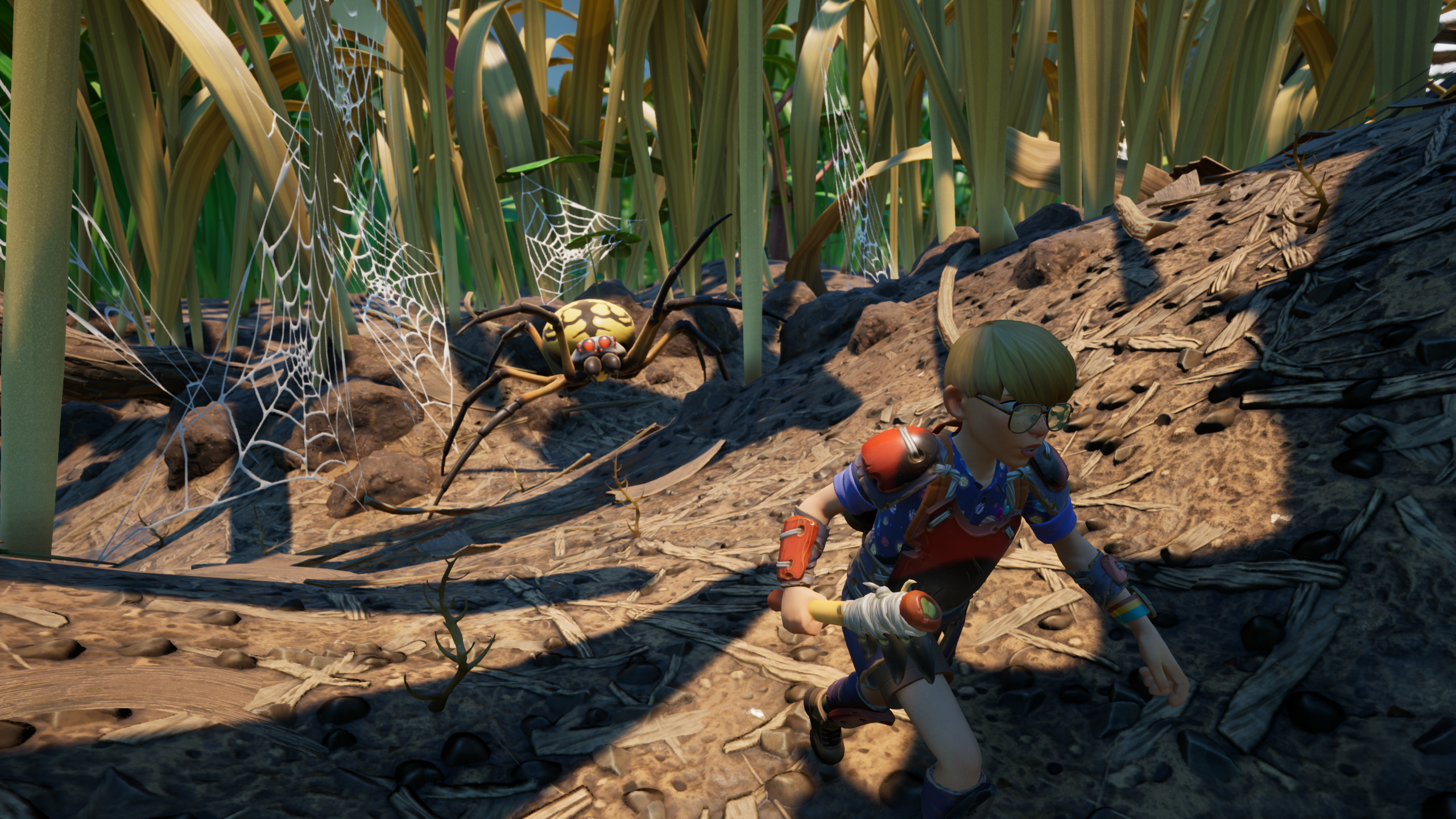Our Verdict
Grounded is a delightfully creative and occasionally terrifying survival sandbox.
PC Gamer's got your back
What is it? A survival game inspired by Honey I Shrunk the Kids.
Expect to pay: £35/$40
Release date: September 27, 2022
Developer: Obsidian Entertainment
Publisher Xbox Game Studios
Reviewed on RTX 3080 Ti, Intel i7-8086K, 16GB RAM
Multiplayer? 4-player co-op
Link Official site
I haven't taken a survey, but I feel pretty confident that nobody at PC Gamer is more afraid of spiders than I am. They petrify me—unless they manage to get on me, at which point I flail around like I'm on fire. And I'd rather be set on fire than feel a spider crawling over my skin. Given this, it's ridiculous that I'd put myself in a situation where I had to review a game that was full of them. But for a survival game as good as Grounded, I'm willing to live through one of my worst nightmares.
Grounded is a time travel device, dragging me back to the garden where I used to spend long, sunny afternoons pretending I was in Eternia or Third Earth, collecting grass stains and scrapes. It's a game fuelled by vibrant '90s cartoons and movies like Honey I Shrunk the Kids, with a quartet of kidnapped, shrunken teens exploring the alien world that's right under our noses.
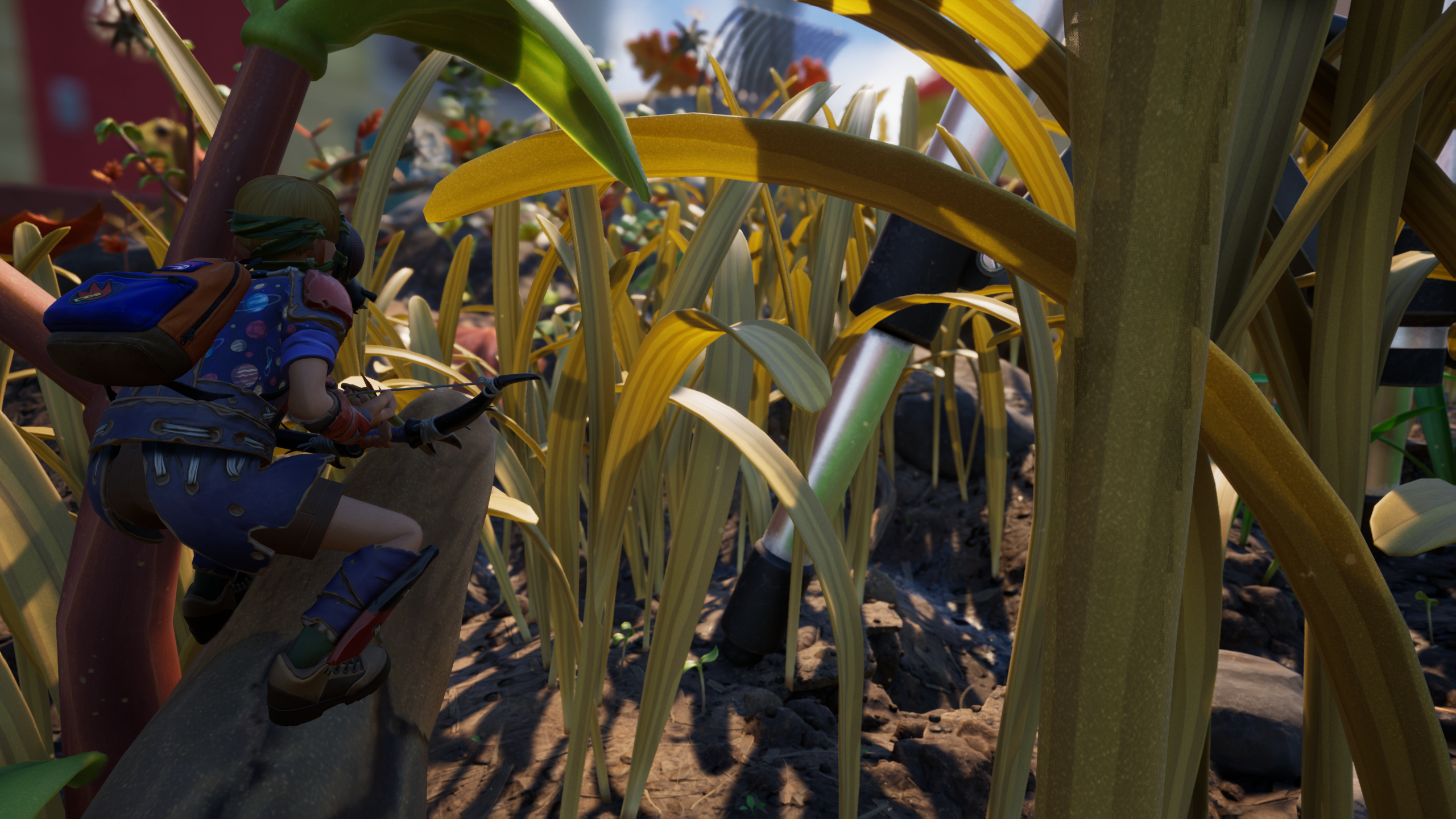
It's a whimsical survival sandbox that feels considerably more playful and welcoming than most, which is why its occasional pivots to arachnid horror are so effective. Back when it launched in early access, Grounded's threats were few. The massive, terrifying spiders that littered the garden never wandered far and were easy to outmanoeuvre, lulling me into a false sense of security. But with every update, they became deadlier, transforming into relentless hunters searching for prey in areas I once considered sanctuaries.
So even though I'd played a lot of Grounded before diving into 1.0, I still had to study my eight-legged nemeses, figuring out their behaviours and weaknesses—a process that typically involved sacrificing myself. It's possible to target creatures by cupping your hands together, making a fleshy telescope, which reveals their resistances and vulnerabilities, but for more information you really need to follow them around and watch how they interact with their ecosystem.
All of the garden's inhabitants have their own patterns and peculiarities. Red ants, for instance, are peaceful but inquisitive when first encountered. They'll fight other bugs, but if you leave them alone they'll not get in your way. If you invade their nest, however, the soldier ants will try to drive you out. And if you start doing some aggressive garden maintenance by squashing lots of friendly ants, they might even declare war and try to chase you out of the garden. And that's why my very first base had to be abandoned.
Ground war
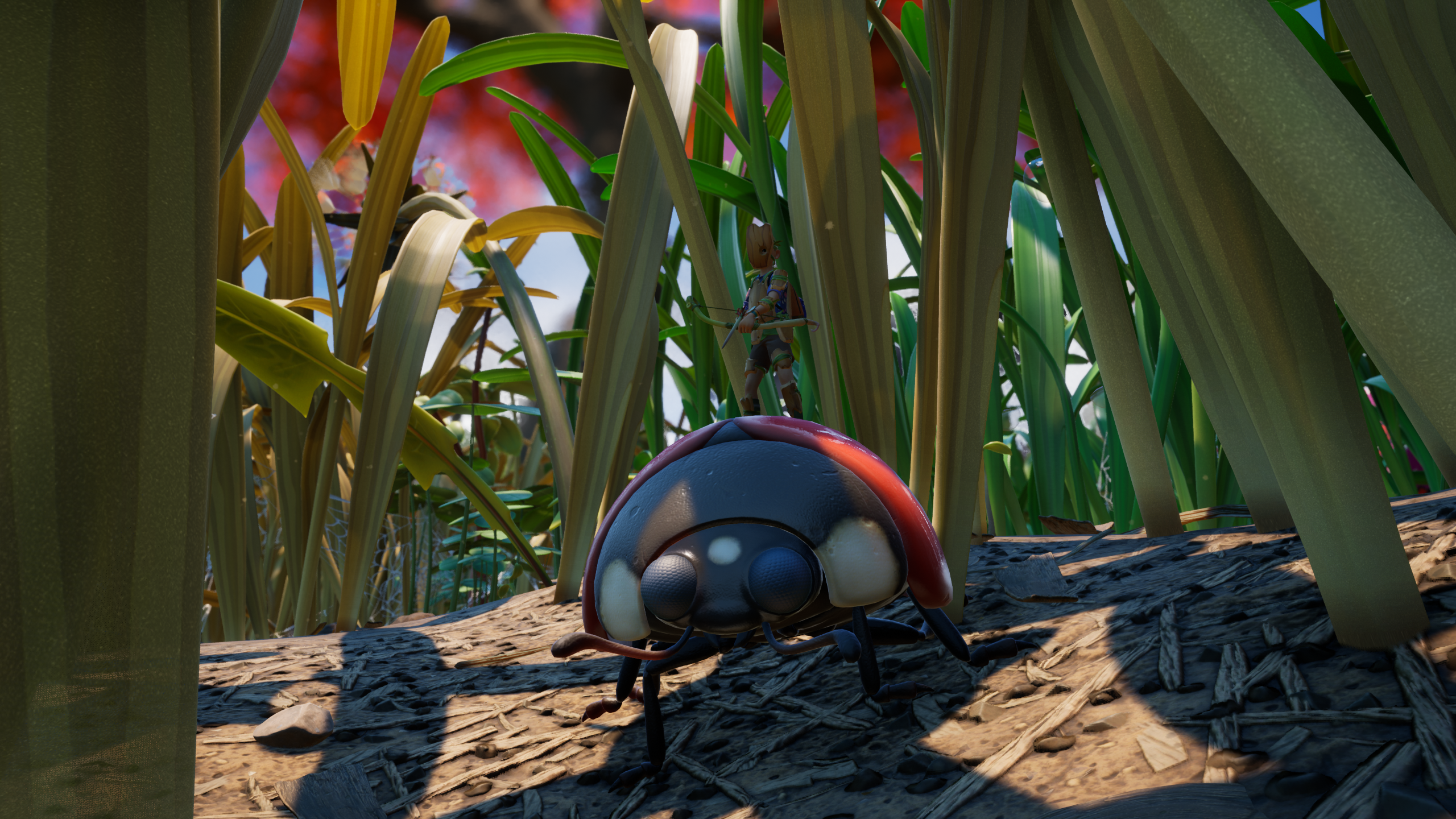
The world is just so tantalisingly reactive, and it's a reactivity you're encouraged to exploit. I killed my first stinkbug—a poison-spewing devil-beast—by creating a three-way brawl between it, a ladybug and a group of ants. The bugs have all the physical advantages, but you've got that clever human brain.
Sometimes the best path to victory is cheating a little bit.
Sometimes the best path to victory is cheating a little bit. Maybe you'll climb up somewhere you can't be reached, peppering your enemies with arrows. Or maybe you'll be even more cunning, drawing them towards a place where you know they'll get stuck. So while the critter AI seems troublingly effective at times, it's also easily baffled or broken. Rather than an issue that needs to be fixed, however, the ability to win fights through cheesy tactics just feels like another legitimate survival strategy, and even in a state of befuddlement the garden's biggest predators are still intimidating menaces.
There are few sandboxes that feel this alive. The garden is never at rest, and every step you take is accompanied by a cacophony of bug noises—at first seemingly discordant, but eventually reassuring and familiar. Visibility is low when you're surrounded by tree-sized grass, but after living in the garden for so long, now I can paint a picture of it using my ears. I feel like a tiny wilderness expert, all thanks to the incredible sound design. At least until I get distracted and something nasty sneaks up on me.

This happens a lot more in co-op. Just the other night I was chatting away with a friend after they narrowly escaped a spider. We were hanging out in our base next to a building-sized juice box (which I've since turned into a watchtower) discussing how safe we felt, and how we were hidden from any spiders that may have followed him back. Too late, during a break in the conversation, I heard an alien noise: something akin to footsteps, but with more implied menace. And then a leg appeared, coming around the corner.
My friend was murdered first. He didn't stand a chance. I was ready to leap into the water, where I knew the wolf spider couldn't follow, but I wanted vengeance. I rushed towards the demon with my pitiful club and a half-hearted battle cry. It reared up, red eyes glowing, evil fangs at the ready, and let out an unearthly shriek. I didn't even get to hit it once.
The horror is so effective, especially once night falls, that I've caught myself whispering several times, even though these spiders aren't yet able to hear conversations over Discord. And whenever I've felt safe, that's when the spiders have attacked. I woke up one morning to find one of them just hanging out on my roof—a harrowing encounter that's got nothing on the time one of them smashed through my wall.
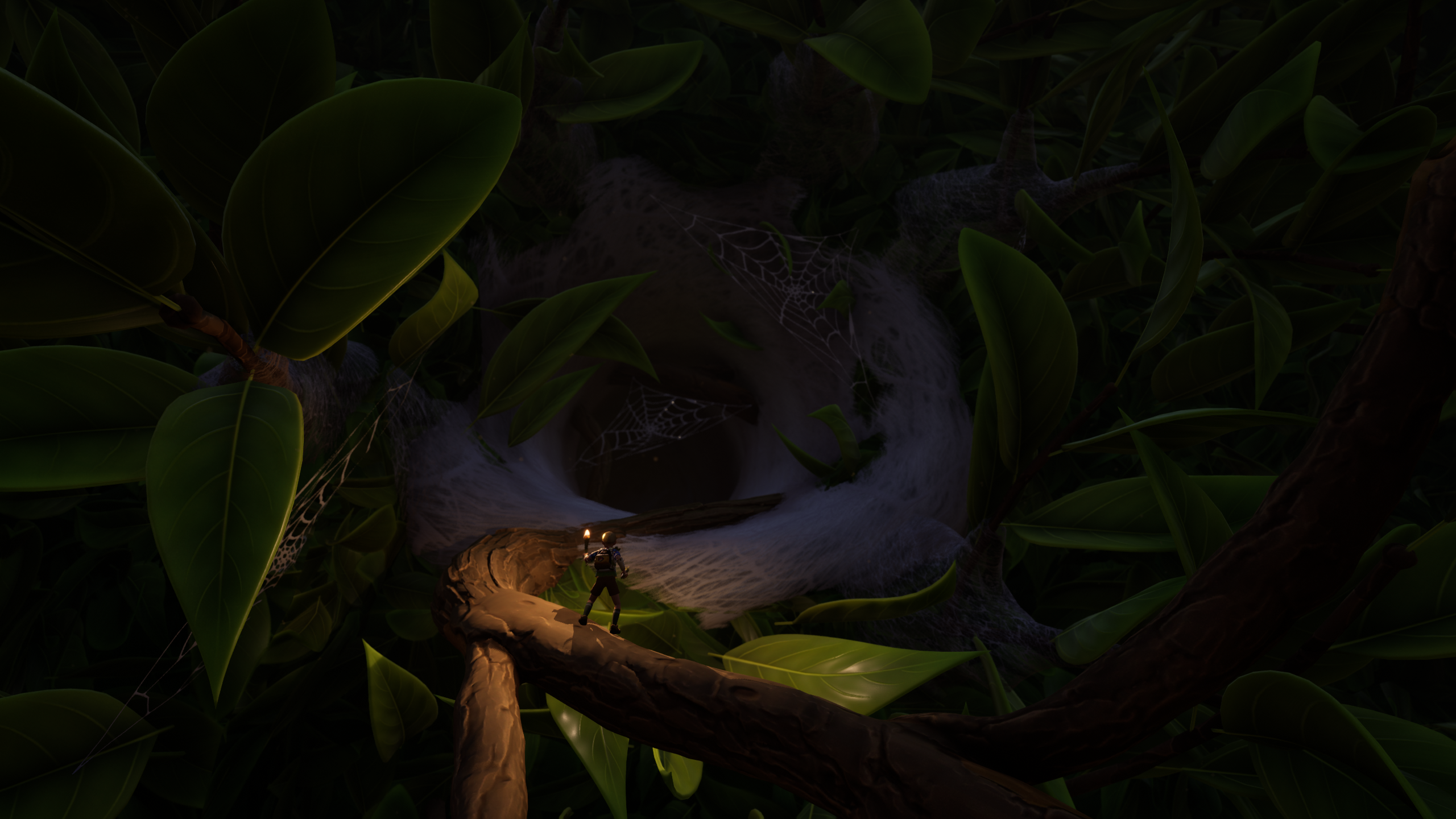
Escape is the premise that drives Grounded forward. You need to unravel the mystery of your kidnapping and find a way to get big again, exploring labs that were built by the scientist who made the monumental breakthrough that led to your unfortunate situation. These lab excursions can be pretty tricky, and even the easiest one sends you into a spider-infested hedge. Even if escape isn't on your mind, the labs are a great source of Raw Science, which makes life in the garden a lot easier—if you want to survive, you need to get smarter.
Brain power
Raw Science is effectively experience, filling a meter until you level up and unlock new crafting recipes. It can be found out in the wild in finite quantities, but you can earn more by completing simple quests for BURG.L, a friendly, bumbling robot. Analysing resources and bug parts at field stations also unlocks related crafting recipes and gives you yet more Raw Science. It's handy to have multiple ways to unlock these recipes, but the level system can sometimes feel superfluous as a result.
More than a few times I've earned nothing at all upon levelling up because I've already unlocked the recipes by using the analyser, taking the wind out of my sails just a little bit. And that's all you get when you gain a new level; things like health and stamina upgrades are connected to an entirely different system. Traits, too, are handled separately, by a mutation system that gives you significant advantages for completing challenges. Kill a lot of bugs with your spear, for instance, and your spear attacks will start to lower your foe's defences. You can only select two at a time, however, though that number can eventually be increased to five. The pace of progression is great, making you quickly feel like you're getting a handle on this survival malarkey, but I'd prefer fewer systems with less overlap.
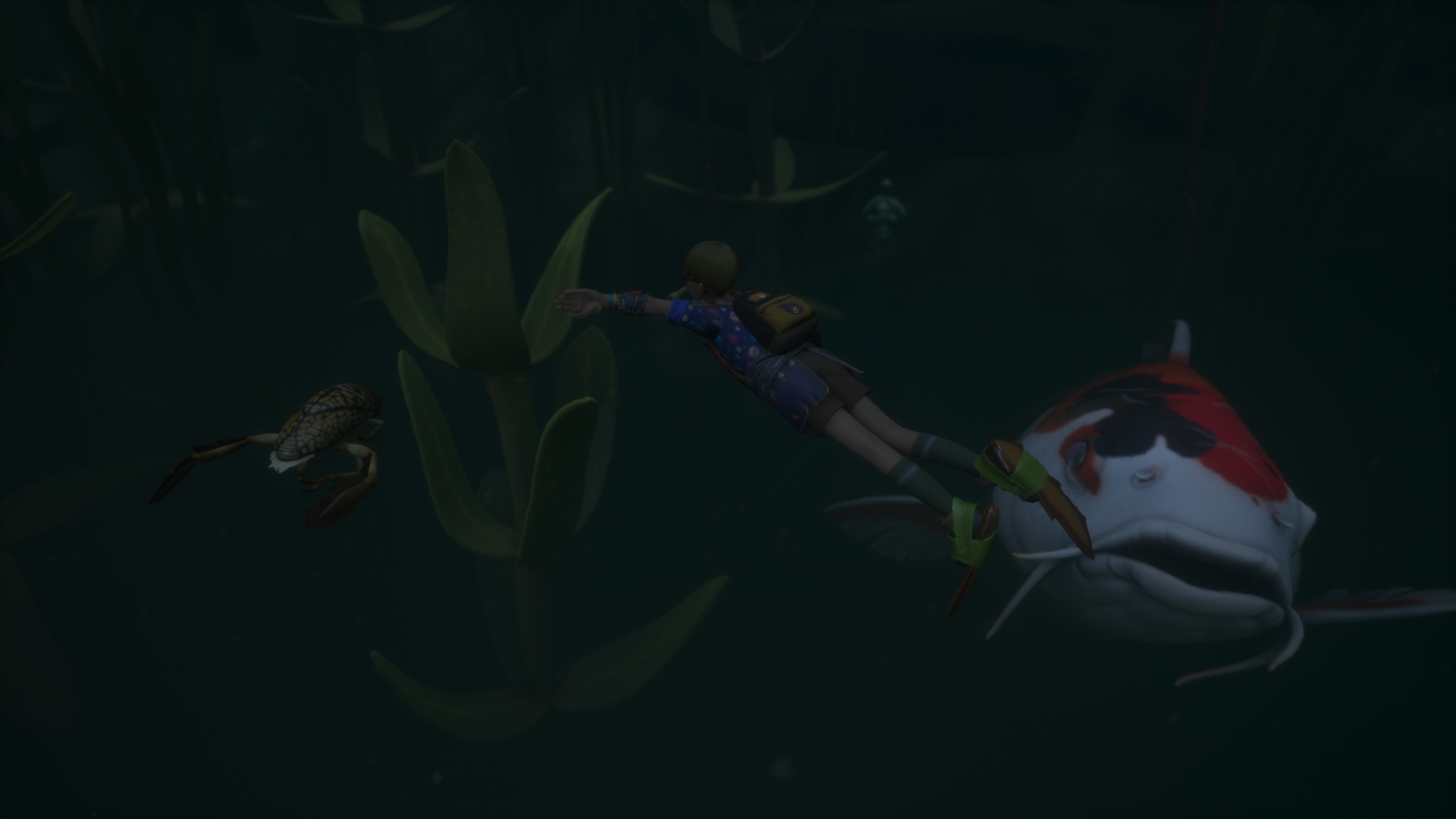
While levelling up might not always feel very meaningful, collecting Raw Science is still imperative because it can also be spent at a lab computer on special recipes that can't be unlocked anywhere else. These range from longer-lasting torches that will let you delve deeper into anthills and spider lairs, to sturdy fortifications that will turn your base into a fortress, and the list of recipes expands every time you discover one of BURG.L's lost chips, hidden throughout the garden.
Even though you're often making familiar items like swords, chests and walls, every single object reinforces the fact that you're pocket-sized.
Crafting and construction benefit greatly from the creative setting. Even though you're often making familiar items like swords, chests and walls, every single object reinforces the fact that you're pocket-sized. So instead of making a sword with steel, you'll need to hunt down a deadly mosquito and harvest its proboscis. Tangoing with a flying monster who could potentially kill you with a couple of jabs is just a bit more thrilling than mining and smelting ore. Since Grounded runs on cartoon logic, that mosquito sword will also heal you by stealing the blood of your enemies. Isn't nature marvellous?
That logic applies to base building, as well, which is flexible and gravity-defying enough to allow you to erect a massive structure that snakes up the side of an oak tree using only twigs and grass. Everything can be recycled, refunding a portion of the cost, while furniture and crafting stations can easily be relocated. It's simple and forgiving enough so that you can really start putting together elaborate builds not long after you arrive in the garden. You'll unlock all the basic parts quickly, and the resources they require can be found nearly everywhere.
Adventure time
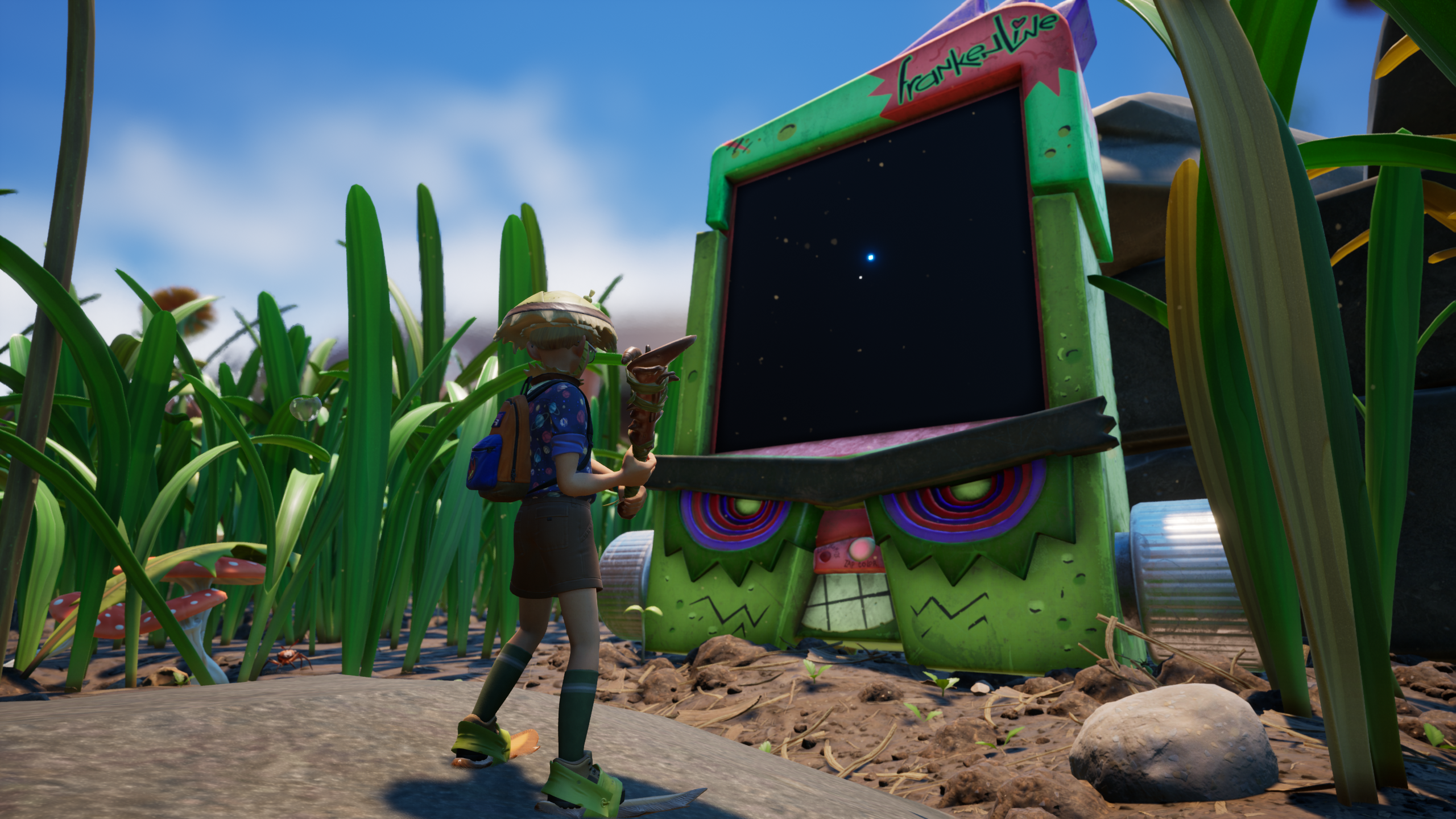
It can be tempting to focus on perfecting your safe, comfy base, but there's always something nudging you out the door, whether it's the need for food and water, or a new recipe demanding rare resources. What you need might be in an unknown area, and Grounded seems to delight in giving you shopping lists full of things you're probably not equipped to find—usually in the form of a limb from a bug that will squash you in seconds. I found that to be a great motivator, though, and there's usually more than one way to get what you need.
Go exploring and you'll come across hidden weapons, spider sacks containing new bug parts and resources (and horrible spider babies), and plenty of Raw Science—all of it waiting to be snatched up by a bold idiot.
That's what I was hoping to find when I wandered, unprepared, into an anthill for the first time. Instead I just found lots of eggs. Not wanting to go home empty handed, I started grabbing them, at which point every ant lost their shit. And then my torch went out. I flailed around, ran into walls, yelled quite a bit, but I still managed to escape with a sliver of health and my prize: four eggs. The sun had set while I was having my misadventure, so I hoofed it back to my base to get some well-earned rest. Figuring out what to do with the eggs could wait until tomorrow, I thought. When tomorrow arrived, however, the eggs were gone, replaced by four fully-grown ants. In my house. Messing my shit up. And that's how I accidentally became an ant farmer.
The default settings are well-tuned, delivering a cavalcade of tense but surmountable adventures where death is a pest rather than the end. You can get your inventory back by finding your grave, though your gear will be slightly damaged. But Grounded is flexible enough to generate all sorts of survival experiences. If you'd rather build and explore without any risks, you can turn all the threats off, letting you bound around without being worried about starving or becoming spider food. Coupled with its myriad accessibility options, including an arachnophobia mode that turns spiders into amorphous blobs, this makes it a game with very few barriers and an abundance of tools.
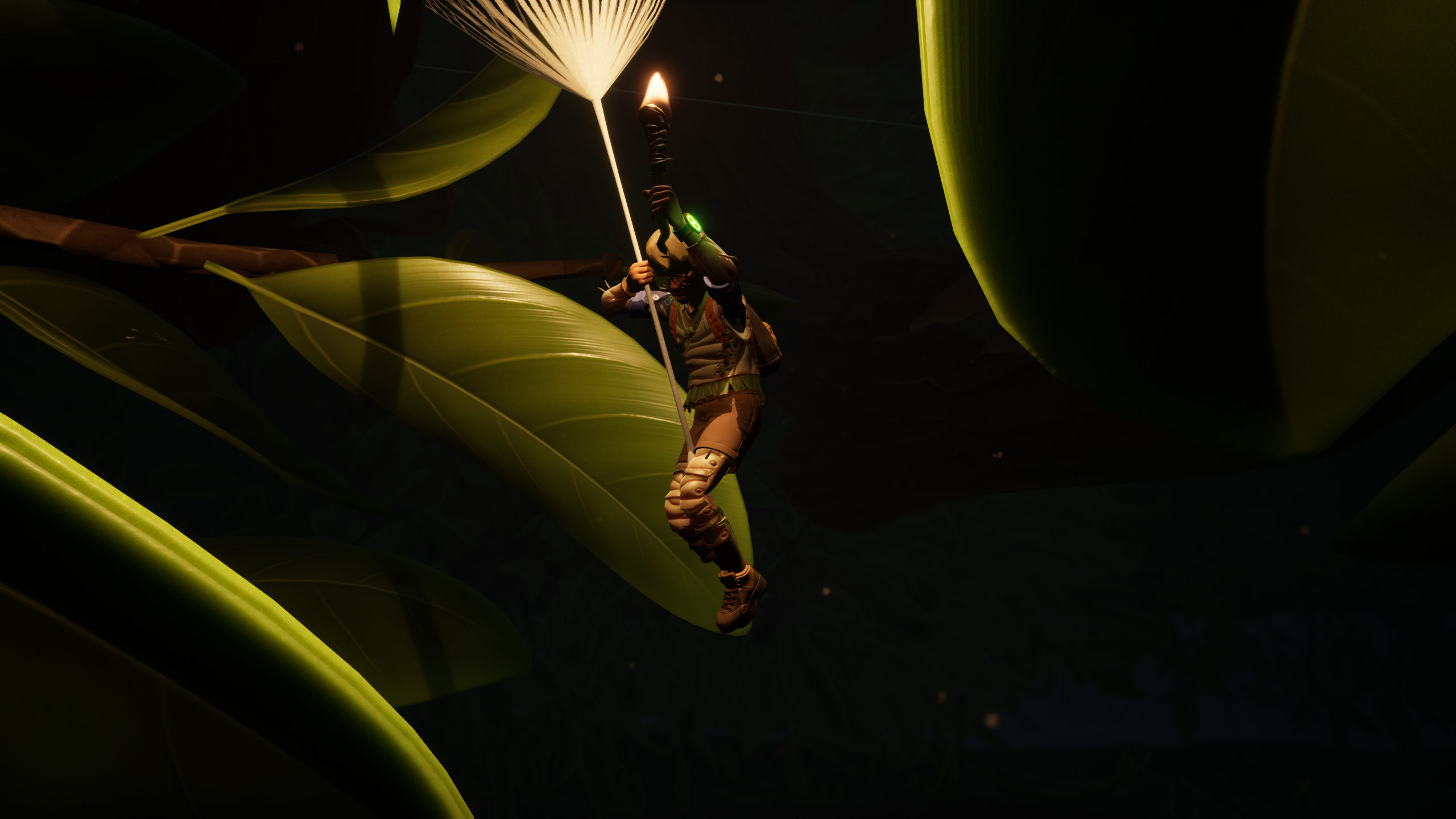
I thought I'd grown tired of survival systems and arduous corpse runs, but in Grounded I haven't been tempted to turn off any of the dangers even once. I'd miss trying to dodge bombardier beetle artillery strikes while I'm searching for food, or hunkering down under a tree root praying that the prowling spider doesn't notice me. I'm happy to put up with all sorts of obstacles if they're thrilling enough.
Knowing that death could come from any direction, I've been forced to figure out safe routes through the garden, jumping across the natural platforms created by grass and clover to stay above all the threats. Where there are no paths, I've made them myself, constructing bridges, stairs and zip-lines everywhere, allowing me to reach my far-flung outposts. Slowly but surely, I've been taming this wilderness and turning it into my own personal playground.
When I was small, I made my plain suburban garden the most exciting place on Earth, and Obsidian has done the same. I've been chased by whale-sized carp, ridden ladybugs like an insect-hunting knight and massacred bees on top of forgotten action figures. Every new section of the garden is another alien world waiting to be explored, understood and then conquered. It's the most fun I've had in any survival game, even if my fear of spiders has only grown more acute.
Grounded is a delightfully creative and occasionally terrifying survival sandbox.

Fraser is the UK online editor and has actually met The Internet in person. With over a decade of experience, he's been around the block a few times, serving as a freelancer, news editor and prolific reviewer. Strategy games have been a 30-year-long obsession, from tiny RTSs to sprawling political sims, and he never turns down the chance to rave about Total War or Crusader Kings. He's also been known to set up shop in the latest MMO and likes to wind down with an endlessly deep, systemic RPG. These days, when he's not editing, he can usually be found writing features that are 1,000 words too long or talking about his dog.
